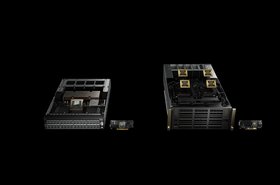Akamai Technologies has launched Gecko, a cloud service delivered on the company's content delivery network (CDN).
Gecko (Generalized Edge Compute) embeds cloud features in its CDN, which Akamai describes as a "distributed cloud computing platform," which will eventually deliver services close to customers.
Akamai plans to make virtual machines available on Gecko in 100 cities this year, serving areas where hyperscalers like AWS and Azure don't have good coverage, starting with Bogota, Colombia; Denver, Colorado; Houston, Texas; Hamburg, Germany; and Marseille, France.
In a second phase later this year, Akamai plans to add containers to the virtual machines, followed by full automated workload orchestration so developers can build applications which span hundreds of distributed locations.
Akamai says Gecko provides generalized compute on an Edge network, doing away with the distinction between cloud and Edge. From early enterprise trials, the company says AI inferencing, multiplayer gaming, and social and streaming media will be the top applications.
"Hyperscalers have dominated the cloud market for years, based on a decades-old centralized model," says the Akamai release, pointing out that the UK's Competition and Markets Authority (CMA) is investigating competition in the cloud market, and claiming that a distributed model will provide lower-latency services in awkward locations, and give customers more choice.
Akamai's CDN was launched before 2000, to speed up the delivery of web pages, Other CDNs including Cloudflare have been launched since, and all of them now aim to deliver application services at the Edge of the network, with features like Akamai Edge and Cloudflare Workers. Cloudflare has already announced plans to provide AI inference services on its CDN.
“Gecko is the most exciting thing to happen to the cloud in a decade,” said Dr. Tom Leighton, Akamai co-founder and CEO. “It’s the next phase of the roadmap toward a more connected cloud we laid out when we acquired Linode to add cost-effective, cloud-native computing capabilities to our portfolio.”








